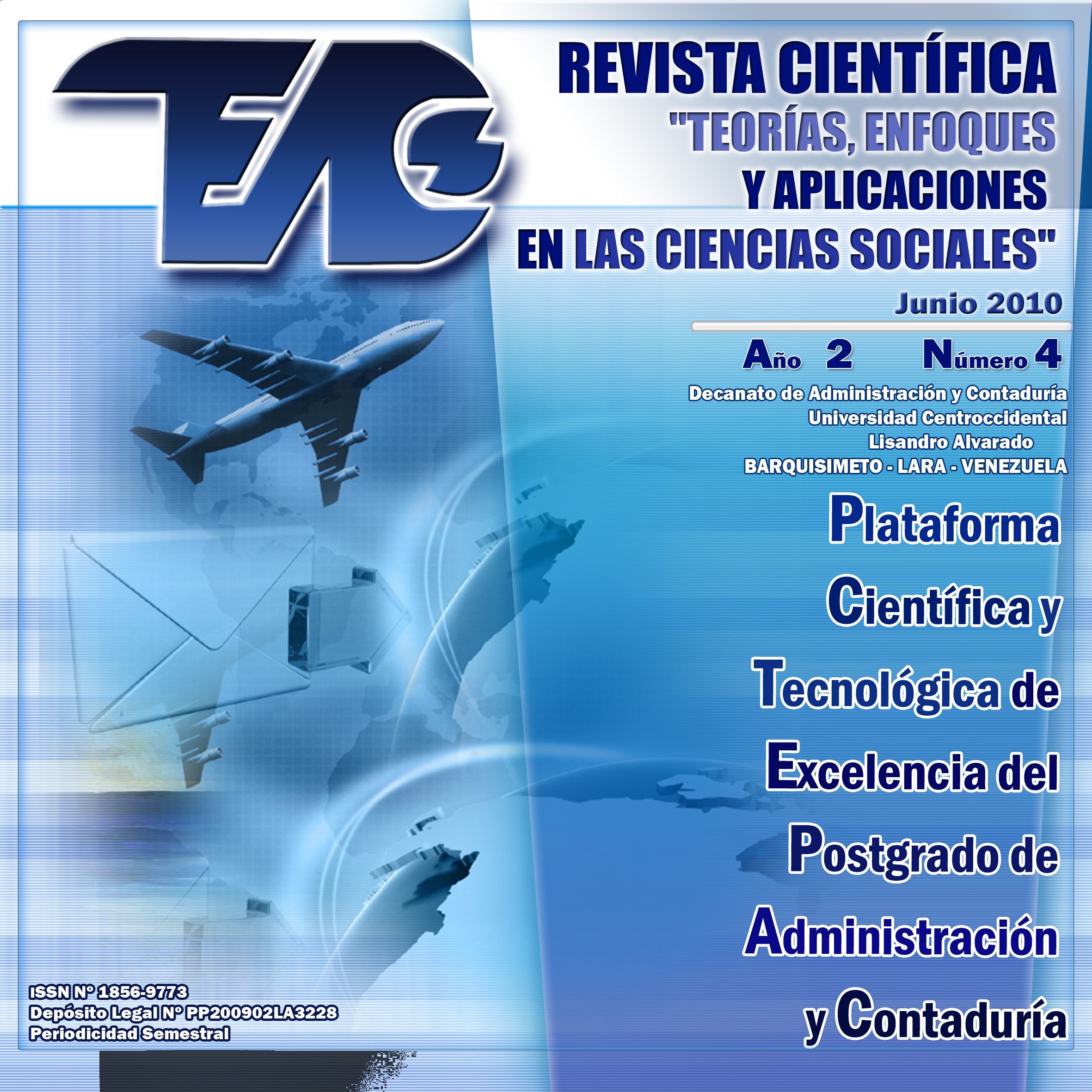Intangible impacts assessment of r & d: development of methodology used in public research centres
Keywords:
assessment of impacts of R & D,, Intangibles, KnowledgeAbstract
The generation of intangible assets is one of the most significant research and development (R & D). Undeniably, the role that intangibles such as input and output in the process of technology development. Find ways to demonstrate the intangible impacts of R & D generated from the viewpoint of knowledge creation, and political-institutional training is very important to public organizations of R & D for two reasons. First to address future R & D efforts and to demonstrate the effects that these impacts have on improving the living conditions of people working in agriculture and society in a general way. This work demonstrates the construction process of impact assessment methodology used intangibles Embrapa (Brazilian Agricultural Research Company), a public research organization in Brazil.
Downloads
References
Avila. A. F.D., (2008) Avaliação dos Impactos Econômicos de tecnologias agropecuárias. In: Avila. A. F.D., Rodrigues, G. R., Vedovoto, G. L., Avaliação dos Impactos de tecnologias geradas pela Embrapa.: Metodologia de referência. Brasília, DF: Embrapa. Informação Tecnológica,p. 19-42.
Foray, D.; Lundvall, B. A. (1996) The knowledge-based economy: from the economics of knowledge to the learning economy.In: Employment and growth in the knowledgebased economy. Paris: OECD, p. 11-32.
Furtado, A. T. (2003) Políticas públicas para a inovação tecnológica na agricultura do estado de São Paulo: métodos para avaliação de impactos de pesquisa, dimensão capacitação. Campinas, SP: UNICAMP-GEOPI. p. 45-60.
Gumport, P. (2002). Universities and knowledge: restructuring the city of intellect. In: BRINT, S. (Ed.). The future of the city of lntellect: the changing American University. Stanford: Stanford University Press,. p. 47-81.
Kline, S.; Rosenberg, N. (1987) An overview of innovation. In: LANDAU, R.; Rosenberg, N. (Ed.). The positive sum strategy. Washington, DC: National Academy of Press, 1987. p. 275-306.
Nuchera, A. I.; Serrano. G. L. (2006) La importancia del conocimiento científico y tecnológico en el proceso innovador. Revista de Investigación en Gestión de la Innovación y Tecnologia. n. 39,EVALUACIÓN DE IMPACTOS INTANGIBLES DE LA I+D: EL DESARROLLO 32 DE UNA METODOLOGÍA UTILIZADA EN CENTROS PÚBLICOS DE INVESTIGACIÓN nov./dic. Disponível em: . Acesso em: 03 dez. 2007.
OECD. (1996) Organisation for Economic Co-operation and Development. The knowledgebased economy. Paris: OECD-GD, 46 p.
OCDE , Frascati Manual, (2002) Proposed Standard Practice for Surveys for Research and Experimental Development, OECD, Paris.
OCDE (2005) “Oslo Manual: Guidelines for Collecting and Interpreting Innovation, 3rd Edition”. OECD, Paris.
Pardey, P.; Alston, J. M.; Chan-Kang, C.; Magalhães, E. C.; Vosti, S. A. (2004) Assessing and attributing the benefits from varietal improvement research in Brazil international food policy research institute. Washington, DC: Department of Justice, 90 p. (Research report, 136).
Paulino, S. R.; Rodrigues, G. S.; Salles-Filho, S. L. M.; BIN, A. (2003) Impactos ambientais na agricultura: um método de avaliação de programas tecnológicos. In: SEMINARIO LATINO-IBEROAMERICANO DE GESTIÓN TECNOLÓGICA ALTEC, 10., 2003, Cidade do México. Anais... Cidade do México: altec,. p.1-16.
Vedovoto. G. L., Avila, A. F. D., Marques, D. V., (2008) Avaliação de impacto sobre o conhecimento, sobre a capacitação e de impacto político-institucional da pesquisa da Embrapa. In: Avila. A. F.D., Rodrigues, G. R., Vedovoto, G. L., Avaliação dos Impactos de tecnologias geradas pela Embrapa.: Metodología de referência. Brasília, DF: Embrapa. Informação Tecnológica. P. 105-27.
Zackiewicz, M. (2003) Coordenação e organização da inovação: perspectivas do estudo do futuro e da avaliação em ciência e tecnologia. Parcerias Estratégicas, Brasília, DF,n.17, p. 193 - 214, set.
Published
How to Cite
Issue
Section
Derechos del/de autor/es a partir del año de publicación
Esta obra está bajo la licencia:
Creative Commons Reconocimiento-NoComercial-CompartirIgual 4.0 Internacional (CC BY-NC-SA 4.0)
Las opiniones expresadas por los autores no necesariamente reflejan la postura del editor de la publicación ni de la UCLA. Se autoriza la reproducción total o parcial de los textos aquí publicados, siempre y cuando se cite la fuente completa y la dirección electrónica de esta revista. Los autores(as) tienen el derecho de utilizar sus artículos para cualquier propósito siempre y cuando se realice sin fines de lucro. Los autores(as) pueden publicar en internet o cualquier otro medio la versión final aprobada de su trabajo, luego que esta ha sido publicada en esta revista.



